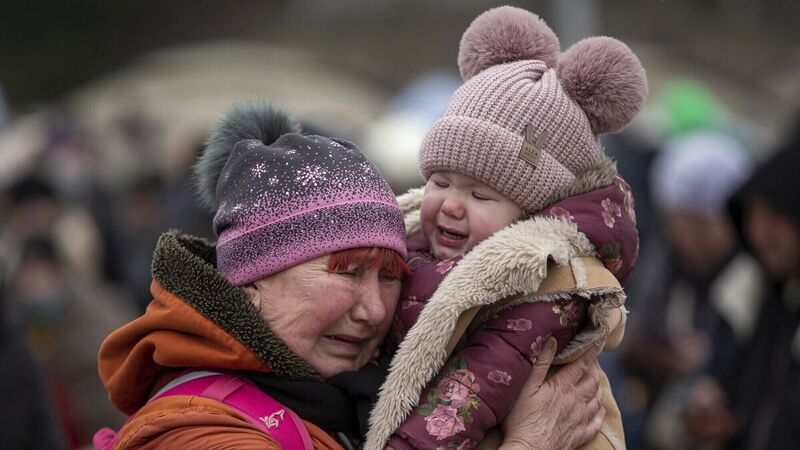'The city is almost ruined:' Russian offensive slows as evacuations get underway

A woman holding a child cries after fleeing from Ukraine and arriving at the border crossing in Medyka, Poland,.(AP Photo/Visar Kryeziu)
Try from €1.50 / week
SUBSCRIBELatest developments:
Already a subscriber? Sign in
You have reached your article limit.
Annual €130 €80
Best value
Monthly €12€6 / month
Introductory offers for new customers. Annual billed once for first year. Renews at €130. Monthly initial discount (first 3 months) billed monthly, then €12 a month. Ts&Cs apply.
CONNECT WITH US TODAY
Be the first to know the latest news and updates

Select your favourite newsletters and get the best of Irish Examiner delivered to your inbox
Saturday, February 7, 2026 - 11:00 PM
Saturday, February 7, 2026 - 9:00 PM
Saturday, February 7, 2026 - 11:00 PM
© Examiner Echo Group Limited